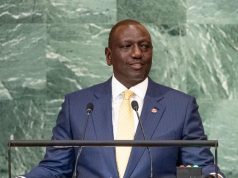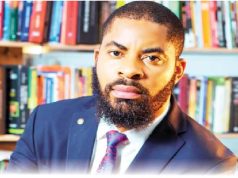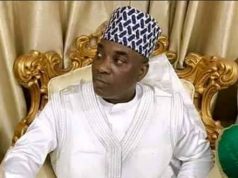IKENNA EEMEWU
Apart from Lateef Fagbemi (SAN), the federal government chief legal officer, every other expert in the law agree that President Bola Tinubu’s reckless shutdown of democratic institutions in Rivers State is the height of presidential impunity and an arrest of democracy.
I am not lettered in the law, but in common sense. Before the experts started talking, I had wondered what democracy actually means that millions of people of Rivers State elected their citizens to represent them, but just one man called a president has the power to rubbish all those in one sentence.
Rivers voters number over 5 million. They voted for some people to represent them as governor, deputy governor, and members of the state legislature, and one man, also elected, woke up one morning, according to his personal benefits and mood swing to overthrow the mandate of millions.
In that case, the majority doesn’t win the election anymore.
Before I could piece together how one clause in the 1999 Constitution called Section 305 crafted such an absurdity in a document that is meant to lay the foundation of fairness and democracy, I started hearing from the experts that Tinubu acted ultra vires his powers; that Section 305 never endowed on one person the powers to topple the democratic will of an entire state.
If they didn’t clarify that, I was already waiting for the next state that would be swallowed down in Tinubu’s powerful throat in the declaration of another frivolity.
To the president who has such enormous powers, calling Nyesom Wike to order to allow an elected governor to manage the state in peace was beyond him. Maybe, there is no Section 305 in the constitution for him to invoke and ask Wike to face his Federal Capital Territory job while Rivers State stops choking under his vice grip.
Rivers State under Wike had a minister in Abuja who did not enthrone himself as the god of Rivers. Peter Odili left that office and didn’t transfigure to a god to stop the state from breathing.
But Tinubu deliberately side-stepped all those to assist asphyxiate Rivers State after he intervened in another political upheaval in his Lagos State and resolved it without any declaration to suspend democracy.
This impunity as all legal experts have described it reminds us of what history gave the USA in 1971 when President Richard Nixon, a man so familiar with scandals, including that of Watergate, overlooked the calamity troops from his country had been facing in Vietnam from 1968 to launch a fresh attacks on Cambodia.
The USA had been counting its losses and thinking of a way to extricate itself from the shame of utter defeat in Vietnam, a self-imposed punishment on the superpower when Nixon started another trouble just to flex presidential muscles.
The USA is a place where laws rule as a judge of that country said in obiter dicta that ‘the government of the US should be a government of laws and not the government of men’. I once heard Femi Falana, a human rights lawyer, say that the most powerful human being on earth is the president of Nigeria because while other presidents are regulated and directed by laws, the Nigerian president is himself the law and nobody controls him. That is eternally true with what we have seen in Rivers State in Tinubu’s hands.
Earlier, President Olusegun Obasanjo did the same in Plateau and Ekiti states and suspended Governors Joshua Dariye and Ayo Fayose in May 2004 and October 2006 respectively.
President Goodluck Jonathan did that in Plateau, Niger, Yobe, and Borno states plagued by Boko Haram but spared the governors and state legislature. So, Jonathan applied a reformed version of the rule to protect the state and not arrest or uproot democratic institutions in them. That was a reasonable application of what the framers of that clause envisaged.
With this impunity crafted into the power of the president to declare a state of emergency the Tinubu way, it is time to look at that constitutional provision again. This is when we will know if we have any legislative arm of the government that has a bite and quantum of independence.
When Nixon abused his powers to irrationally and vexatiously order US troops with their jets and tanks to attack any country at will, Congress ordered him to reverse himself and ask the troops he sent to Cambodia to return immediately. Nixon stood his ground, claiming he had the power to do so.
The Congress also set out to cut his powers down as it had been subject to gross abuses.
That is the birth of the War Powers Resolution, 1973. It is so called because as Congress passed the Resolution into law to curtail the powers of the president to unilaterally mobilize US armed forces to wars, Nixon declined to accent the bill.
The Congress waited out the stipulated time for the president’s endorsement he refused to give and vetoed Nixon, signed the Resolution into law. It is today known as the War Powers Act, 1973.
Therefore, Section 305 of the Constitution, having been an instrument of power abuse, erosion of democratic institutions, the enthronement of dictatorship and incubation of absolute powers of one man three times in 21 years; endowing one person in the 21st Century, the status of medieval France where the king was the sovereign and the law, must be reviewed now.
If we indeed have a legislature, it is time to do that.
If waiting for a docile legislature in the armpit of the president would keep us in this for eternity, this is the time the Nigerian Bar Association, Nigerian civil society organisations, or any other burning for positive change to trim dictatorship to size have to initiate a bill to alter or chop off Section 305 for democratic sanity to thrive.










